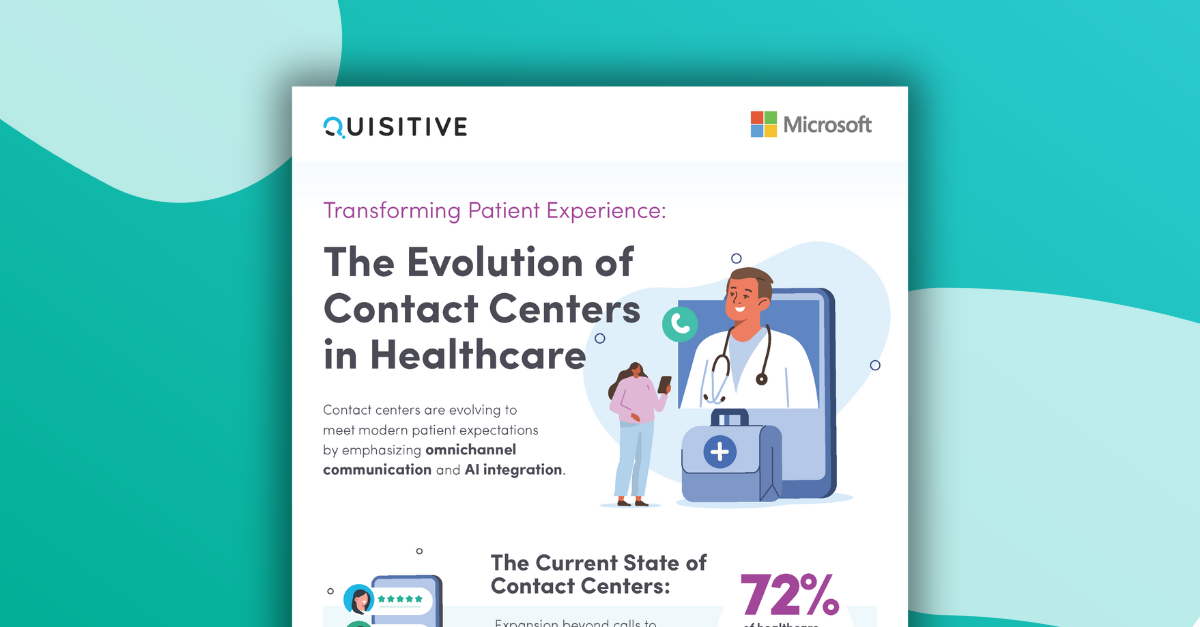A well-designed contact center can significantly enhance patient experiences and streamline practice management. Here are eight steps to building the perfect healthcare contact center:
1. Define Your Goals and Objectives
Start by identifying what you want to achieve with your contact center. Is it to improve patient engagement, reduce no-show rates, enhance care coordination, or all of the above? Clearly defined goals will guide your decisions and ensure your contact center meets the specific needs of your healthcare practice.
2. Choose the Right Technology
Selecting the right technology is critical. Opt for a platform that supports omnichannel communication, allowing patients to reach you via voice, video, email, chat, and social media. Microsoft’s Digital Contact Center Platform is an excellent choice, offering an open, extensible, and collaborative solution for seamless patient journeys.
3. Integrate Patient Data Systems
Ensure your contact center integrates with your existing Electronic Medical Records (EMR) and other patient data systems. This integration allows for personalized interactions and real-time access to patient information, improving the quality of care and patient satisfaction.
Omnichannel communication tools lead to a 25% improvement in care coordination (American Journal of Managed Care).
4. Implement Advanced Scheduling Tools
Optimize your appointment scheduling with intelligent tools that help reduce no-shows and ensure your schedule is fully utilized. Automated reminders sent through multiple channels (text, email, phone calls) can significantly decrease no-show rates and improve operational efficiency.
Implementing an omnichannel approach to appointment reminders can reduce no-show rates by up to 35% (Patient Engagement HIT).
5. Enhance Self-Service Options
Provide patients with self-service options such as interactive voice response (IVR) systems and chatbots. These tools enable patients to schedule appointments, get answers to common questions, and access their health information at their convenience, freeing up your staff to focus on more complex tasks.
6. Train Your Staff
Invest in comprehensive training for your contact center staff. Ensure they are proficient with the technology and understand the importance of empathy and effective communication in patient interactions. Continuous training will help maintain high standards of service and adapt to new tools and processes.
7. Utilize Analytics for Continuous Improvement
Leverage patient and channel analytics to gain insights into your contact center’s performance. Track key metrics such as patient satisfaction scores, appointment utilization, and staff productivity. Use this data to identify areas for improvement and make informed decisions to enhance your contact center operations.
AI-powered contact centers can lead to a 20% increase in staff productivity.
8. Ensure Security and Compliance
Healthcare data is highly sensitive, so it’s crucial to implement robust security measures. Ensure your contact center platform complies with all relevant regulations, such as HIPAA, and employs advanced security features like biometric authentication and encrypted communications to protect patient information.
Building the perfect healthcare contact center involves a combination of the right technology, seamless integration, effective training, and continuous improvement. By following these eight steps, you can create a contact center that not only enhances patient experiences but also improves operational efficiency and care coordination.
At Quisitive, we specialize in helping healthcare organizations transform their contact centers with innovative solutions like Microsoft’s Digital Contact Center Platform. Contact us today to learn how we can support your journey to building the perfect healthcare contact center.

;)



